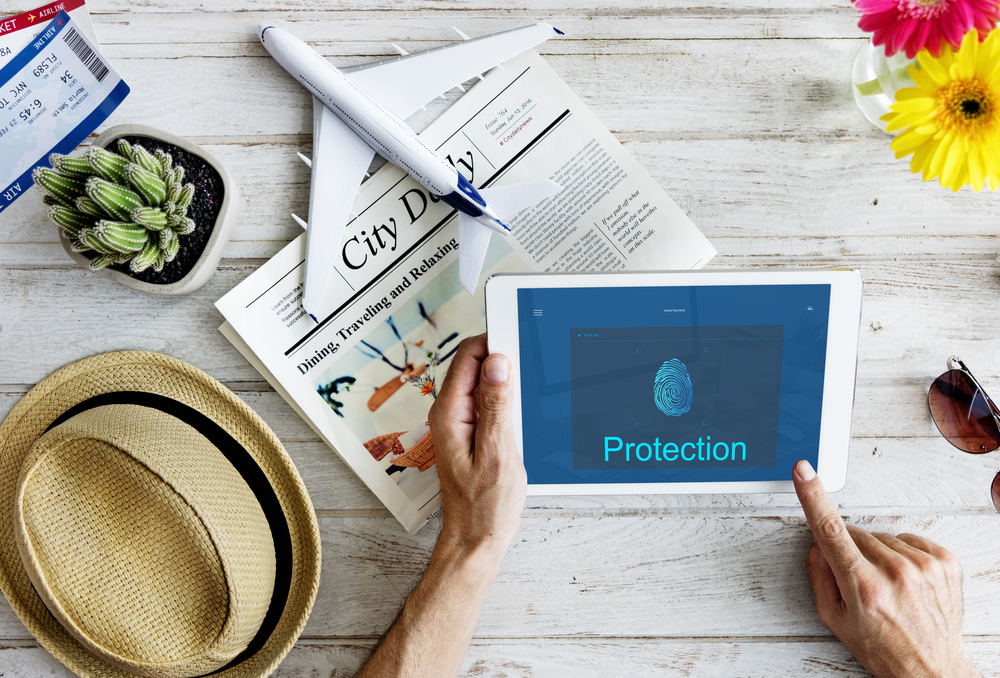Do you have to travel frequently for business? Are you an avid holiday traveler who delights in visiting various countries and exploring their many highlights and absorbing their culture and history?
In either case, whether the travel is domestic or international, today’s world makes it very important that you take extra precautions to protect yourself and the security of your devices including your laptop, smartphone, iPad, and tablet. You are particularly vulnerable if you are a business traveler who carries sensitive data that must not be shared with competitors. You’ll want to ensure you’re safe with these cybersecurity tips.
Before You Go
- Lock your security settings. Back up important information, contacts, videos, photos, and other data on a cloud service or another device.
- Update your system preferences to be sure you’re as protected as the latest security update.
- Change the PINs that you regularly use and make strong passwords that are also unusual by employing symbols and numbers. Worried about losing them? Use a password management system to keep track.
- Take special care to update your operating system, the trusted brand of anti-virus protection, and apps on mobile devices that you regularly use.
- Disable Auto-Connect on your smartphone and laptop that automatically connects to Wi-Fi networks. That way you must manually connect them every time you wish to access the Web.
- Bluetooth signals can come from anywhere. Any cyber criminal could possibly connect to your smartphone and hack into it. Keep the Bluetooth disabled as often as possible.
- Don’t share your plans on social media before a trip. Monitoring social networks is an easy way for criminals to know when you are not at home or not in your hotel room, which poses a real threat to your safety and to the security of your personal property.
When in Another Destination
- Keep your devices secure when in any public places such as airports, hotels, restaurants, bars, coffee shops, internet cafes, market places, train and bus stations, or anywhere that people gather.
- Stay aware of your surroundings. Make sure that nobody stands nearby trying to steal information by looking at your device screen while you are using it.
- Free public Wi-Fi in hotels, internet cafes, and hotspots in other countries aren’t regulated by laws as strict as Internet security laws in the USA, so be careful not to access sensitive data (such as your bank account information) there.
- If you must create a PIN for a security box or safe in a hotel, make sure it is very unique and, again, incorporates numbers and symbols and is not a PIN that you usually use.
- Meals and attendance at conferences and trade shows are optimum times for thieves to access hotel rooms for theft of unattended belongings and perhaps laptops that contain sensitive information. An example is their installing keylogger malware that captures keystrokes and sends the information to criminals. That can include the user’s name, passwords, credit card numbers, birthdate, and more.
More Helpful Resources
* Get additional tips from the Department of Homeland Security, Computer Emergency Readiness Team webpage.
* The State Department website has travel safety and security information, local laws, and policies for each country in the world.
By remaining vigilant during your travels, you can greatly reduce the risk of suffering from growing cyber threats. Hopefully, we have armed you with some of the cyber security tips to protect yourself and your devices.




